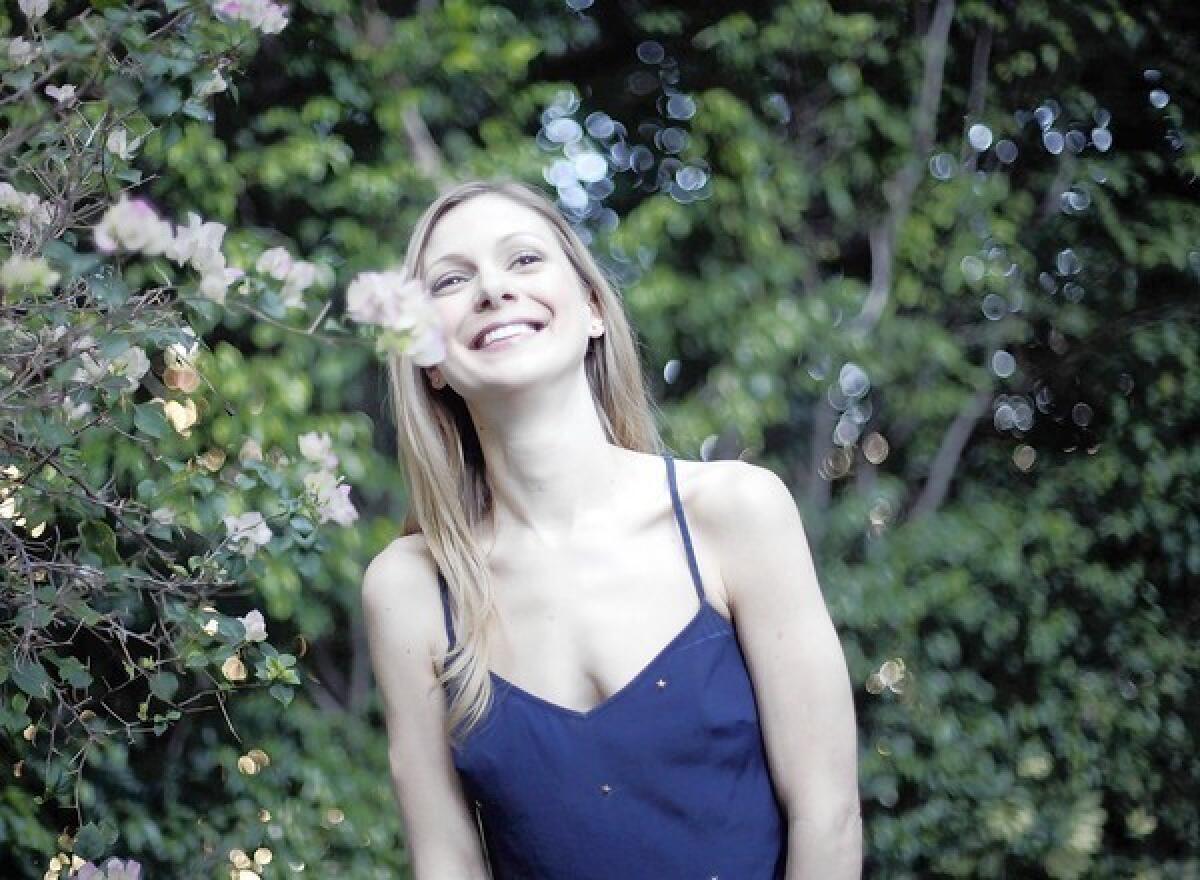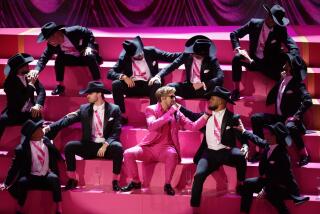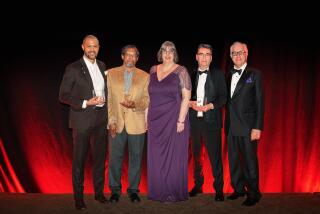The Contenders: ‘Southern Wild’ screenwriter’s heart went against the beat

“Hushpuppy grabs a baby chick and puts it to her ear. A TINY HEARTBEAT. She listens with focused wonder and intensity.”
—from the “Beasts of the Southern Wild” screenplay
Can we please drive a stake through the heart of the Screenwriting 101 commandment that using a voice-over is somehow cheating?
Lucy Alibar, for one, would really appreciate it if all the script gurus would just pipe down. She’s the co-screenwriter and, really, co-creator of “Beasts of the Southern Wild,” which she and her friend since they were teens, director Benh Zeitlin, adapted from her play “Juicy and Delicious.” It’s her first screenplay and, along with such voice-over scofflaws as “Life of Pi” and “Moonrise Kingdom,” it’s nominated for an Academy Award.
OSCARS 2013: Defining scenes | Oscar Watch | Play-at-Home Ballot
“We went through the Sundance labs,” Alibar says, with the happy lilt of a Southerner soon to move home from Brooklyn, “and we did get a lot of ‘You’re not supposed to do voice-over.’ [Screenwriting sage] Robert McKee said something like, “God help you if you use voice-over. God help you. It’s flaccid, sloppy writing.”
Alibar remembers the panic: “I was like, ‘Robert McKee says I’m flaccid and sloppy!’”
For the record, Alibar is neither. She’s smart and sweet and funny, with a voice that swoops in and out of falsetto, and skin so lambent it makes even a veteran newspaper photographer double-check his light meter. Asked for the zygote moment when her play first began to germinate, Alibar pauses so long you fear she’s forgotten the question. Instead she’s remembering the answer:
“When I was little, my dad and I would go on runs a lot. Sometimes we’d come back and just chill, and he’d let me listen to his heart. Some of my most sweet and peaceful memories are just listening to my dad’s heart beat.
“It became theatrical when he became sick, and it was his heart.”
OSCARS 2013: Snubs & surprises | Reactions | Trivia | Timeline
The word “heart” appears fully 19 times in Alibar’s finished screenplay — in dialogue, in script directions and, yes, in the voice-over spoken by Hushpuppy, a rural Louisiana girl whose own father’s heart may be killing him. From a play about events that feel like the end of the world, Alibar has fashioned a post-Katrina movie that actually ponders the end of the world. Five years after her father’s illness, Alibar also turned Hushpuppy, a boy in the play, back into a girl (played by first-timer Quvenzhané Wallis, who received a lead actress nomination for the role).
Hard screenwriting choices like these didn’t come naturally to a woman from a hamlet without a multiplex, let alone a good old-fashioned single-screen picturehouse. Alibar’s most visceral memory of her strictly VHS childhood was watching the Indiana Jones movies. Recognizing her inexperience, Zeitlin and their co-producer, Dan Janvey, promptly gave her the movie equivalent of F. Scott Fitzgerald’s “College of One” reading syllabus:
“So Dan has this laptop, he has a DVD of ‘Sunset Blvd.,’ and we go up to Whole Foods Bowery, where you can sit for hours and nobody’ll bug you even if you don’t buy anything? Frame by frame, certainly scene by scene, he’ll stop it and explain everything — how every shot in this movie tells the story. Every time I pass the Whole Foods, I think about film school!”
GRAPHIC: Oscar’s six degrees of separation
No fools they, Zeitlin and Janvey had given her one of Billy Wilder’s most brilliant voice-over scripts (albeit, along with “Double Indemnity,” a voice-over from a dead man). Their tutorial’s next close reading focused on still another classic narrated by its protagonist:
“‘Raising Arizona’ — there are holes in my script from where Benh and I talked about what each scene in that movie is about thematically. Now I’ll read even an Alice Munro short story, and then I’ll reread it and I’ll see, so mechanically, how in the last two paragraphs she just reaches into your heart and pulls it out, like Indiana Jones.”
Whether it’s Hushpuppy pressing her ear against a bird’s frail chest, or Alice Munro ripping out a reader’s beating heart or Alibar as a girl, listening against the breastbone of her own father — still very much alive today and rooting his heart out for his beloved daughter come Feb. 24 — there’s that word “heart” again. Called on it, Alibar shrugs.
“Hearts are my thing.”
MORE OSCAR COVERAGE
VOTE: Play-at-Home Oscar Ballot 2013
TIMELINE: Academy Awards through the years
More to Read
From the Oscars to the Emmys.
Get the Envelope newsletter for exclusive awards season coverage, behind-the-scenes stories from the Envelope podcast and columnist Glenn Whipp’s must-read analysis.
You may occasionally receive promotional content from the Los Angeles Times.







